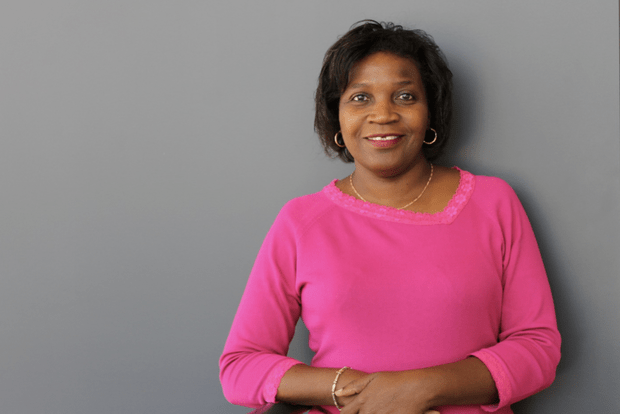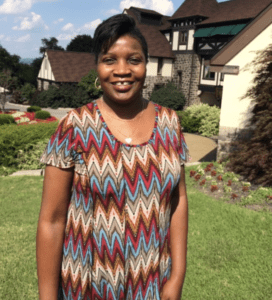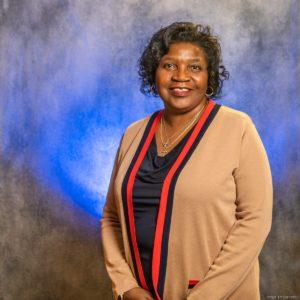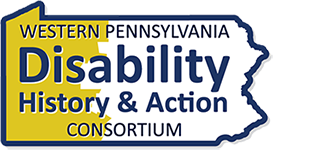By: Jessica C. Neal, Project Scholar

Advocacy doesn’t happen in a silo. There’s always an origin, a problem introduced into the ecosystem that needs solving and galvanizes a person, group, or organization toward a solution. In the latest story in the Intersection of Race and Disability Project, we focus on Melva Fair.
Ms. Fair is the Chief Executive Officer of Community Living and Support Services (CLASS) and a founding and current steering committee member of the Western Pennsylvania Disability History and Action Consortium. A disability advocate for over forty years, Ms. Fair shares her personal experiences and professional ambitions that developed the roadmap for her path to disability advocacy work.
Since 1982, Ms. Fair has supported individuals with varying disabilities. She speaks on the evolution of residential support, community living, and vocational opportunities, and highlights the challenges faced by individuals with disabilities and the organizations invested in supporting them. Despite the challenges that she has seen clients face throughout her career, in sharing her story, Ms. Fair can still underscore the importance of self-awareness and self-advocacy, regardless of where an individual may fit on the disability/ability spectrum. Ms. Fair’s work speaks to the joy of seeing individuals achieve their personal and professional goals.

Born in Duquesne, Pennsylvania, and growing up in the primarily Black neighborhood of Crestas in North Versailles, Ms. Fair is a lifelong Allegheny County native. As a child, Ms. Fair’s interest in disability advocacy was shaped by her grandmother, who served as the caretaker of her cousin, Curtis Miller, who was born Deaf. Though Curtis attended the Western Pennsylvania School for the Deaf to learn American Sign Language (ASL), there were still communication barriers at home, and the family struggled to communicate with him effectively. Witnessing the communication challenges in the home and the responsibility inadvertently placed on Curtis to learn to read lips, Ms. Fair began to think of other communication challenges that may exist for him. Growing up alongside Curtis and trying to understand the needs that people with disabilities face inspired Ms. Fair to pursue a career that would support and uplift the disability community.
Upon graduating from Carlow University, a private Catholic university in Pittsburgh, with a bachelor’s in Elementary and Special Education in 1982, Ms. Fair accepted a position at United Cerebral Palsy (UCP), now CLASS, where she was promoted to an executive role in 1991. Throughout her career, Ms. Fair’s professional experiences include being a residential counselor, life skills educator, consultant, and public speaker on community and disability issues. Through her work, she has emphasized the importance of providing quality support, which she defines as giving people the opportunity to make choices and feel empowered in their lives. Providing quality support is a principle she has ample evidence to support.
She shared a critical story that defined her working philosophy, detailing the story of a young man she worked with through UCP. Ms. Fair’s work highlights the importance of the person-first approach, which is core to her philosophy and advocacy. In keeping with this concept, as she has partnered with employers and people with disabilities over the years, she’s sought to find ways to make the desired goals and lifestyle of the client the priority in solution development.
In the case she relayed, a young man desired to volunteer at a hospital whose staff had previously interacted with him and knew he’d be an excellent fit for their team. CLASS, hospital staff, and the client worked together to develop a role that maximized the impact of his talents, skills, and goals while creating effective strategies for where he may have found challenges. He accepted a mail delivery role that utilized his people skills in the context of meaningful hospital operations. With modifications that better aligned the role responsibilities to his abilities, they found a solution that worked best for everyone.

Ms. Fair offers: “We experience more success when we believe and practice supporting people to reach their personal goals. Ensuring their life goals align with their abilities, passions, and interests.” This principle is challenged, however, when resources do not align with or meet the needs of people with disabilities. Ms. Fair has seen numerous times where underfunding has limited the choice and opportunity of clients. In sharing her story, she added: “We need to do something about the funding because many people are without services because either programs are underfunded or not funded. And it limits the number of choices people get to have because they can’t identify a provider [to] be able to access services.”
Over forty years and even more life experience, Ms. Fair has learned how to support clients meaningfully and impact the world around them. Stemming from her early life and professional experiences, she has progressed her knowledge, understanding, and commitment to the disability community with demonstrated consistency, authenticity, and humility. For those who choose to work within the disability community but are not personally impacted by having disabilities, Ms. Fair provides an instructive example of how to genuinely engage and collaboratively build supportive efforts in ways that prioritize the diverse needs and goals of people with disabilities. Her continued impact grows in her leadership at CLASS and her legendary participation in and support of the Pittsburgh disability community.


